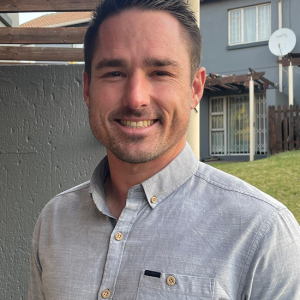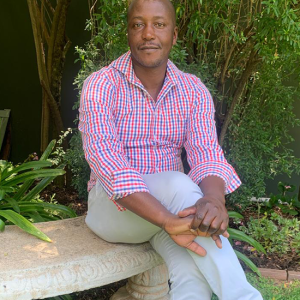








Sandhurst Manor - Johannesburg
This provider's information has been quality-checked by Recovery.com's Research Team for accuracy and completeness, including center verification through appropriate third-party organizations.
Treatment Focus
You can admit to this center with a primary substance use disorder or a primary mental health condition. You'll receive support each step of the way and individualized care catered to your unique situation and diagnosis.
Primary Level of Care
Offering intensive care with 24/7 monitoring, residential treatment is typically 30 days and can cover multiple levels of care. Length can range from 14 to 90 days typically.
Treatment Focus
You can admit to this center with a primary substance use disorder or a primary mental health condition. You'll receive support each step of the way and individualized care catered to your unique situation and diagnosis.
Primary Level of Care
Offering intensive care with 24/7 monitoring, residential treatment is typically 30 days and can cover multiple levels of care. Length can range from 14 to 90 days typically.
Private Pay
You pay directly for treatment out of pocket. This approach can offer enhanced privacy and flexibility, without involving insurance. Exact costs vary based on program and length of stay. Contact the center for specific details.
Sandhurst Manor - Johannesburg
Sandhurst Manor - Johannesburg
About Sandhurst Manor - Johannesburg
Sandhurst Manor is a private pay, reintegration-focused facility that delivers truly bespoke programmes for their clients with addiction, eating disorders, and mental health disorders. Every client begins with a thorough pre-admission assessment, allowing the clinical team to gain a full understanding of their background, needs, and therapeutic goals. From this, Sandhurst designs a fully individualised treatment plan—not a generic track, but a highly personalised programme built around the client’s unique profile. Whether it includes arranged detox and prehab, secondary care, a flexible day programme, aftercare, family support, or a combination thereof, each element is hand-selected and continuously refined to support the person’s evolving recovery journey.
In addition to their comprehensive treatment offerings, Sandhurst Manor has expanded their services to include support for ibogaine-assisted therapies. While they do not administer these psychedelic treatments directly, they offer crucial pre-preparation sessions to ensure clients are mentally and emotionally ready for the experience. Following the treatment, which is conducted by a preferred provider, Sandhurst Manor provides essential post-support sessions to help clients integrate their experiences and maximize the therapeutic benefits.
Embark on a Personalised Healing Journey
Sandhurst Manor, located in the prestigious Hyde Park suburb of Johannesburg, offers a bespoke approach to recovery that emphasizes individualized care and client-centered programmes. Recovery plans are crafted individually, avoiding a one-size-fits-all approach. These bespoke plans seamlessly blend therapeutic activities, reflective writing exercises, and one-on-one sessions. The role of self-esteem is central to their philosophy, with programmes designed to empower clients through meaningful achievements and personal growth. Physical activity and nutritional guidance are incorporated into each treatment plan as research indicates exercise and bodily movement supports wellbeing. Their clinical team specialises in trauma-informed and family systems approaches, which are effective in whole-person healing.
Reclaim Confidence and Purpose
Catering to a diverse clientele, including executives, young adults, and working professionals, Sandhurst Manor provides a welcoming environment where every client feels supported. Their therapies like yoga, massage therapy, horseback riding, and animal-assisted interventions help nurture clients’ mind and body. Central to their philosophy is the development of self-esteem, a cornerstone of their Golden Key Programme, which empowers clients to rediscover their confidence and sense of purpose in life. With flexible treatment options, including evening groups for busy professionals and parents, Sandhurst Manor is committed to helping clients reclaim their lives in a way that fits seamlessly into their personal circumstances.
Build Essential Life Skills
Sandhurst Manor offers aftercare services to support clients beyond their initial treatment. Their specialized programme includes weekly process groups focused on relapse prevention, life skills, and emotional regulation. Individual counselling sessions are also available to address personal challenges. With these flexible aftercare options, Sandhurst Manor gives clients the ongoing support necessary for sustained recovery and personal growth.
Connect with Modern Comforts
Sandhurst Manor features a serene heritage-style building with a large outdoor covered patio, beautiful garden, and swimming pool, creating a therapeutic landscape that promotes emotional wellbeing and social interaction. Clients enjoy private and shared rooms, with meals prepared by a dedicated cook following a nutritionist-designed 4-week rotational menu. The daily schedule includes a medium-intensive programme from 8:30 AM to 1 PM, and clients can use technology after an initial 7-day period, balancing modern needs with their recovery journey.
Highlights from the Center
Highlights
These highlights are provided by and paid for by the center.
Therapeutic Location
Customized Treatment Plans
Holistic Approach
Trauma-Informed Care
Center Overview
Treatment Focus
You can admit to this center with a primary substance use disorder or a primary mental health condition. You'll receive support each step of the way and individualized care catered to your unique situation and diagnosis.

Pricing and Program Length
Estimated Center Costs
The cost listed here (£5,500 / +R130,000 (first month)), is an estimate of program cost. Center price can vary based on program and length of stay. Contact the center for more information. Recovery.com strives for price transparency so you can make an informed decision.
Recovery.com Verified Listing
Recovery.com verified that the name, location, contact information and license to operate for this treatment provider are valid and up-to-date.

Licensed
Recovery.com is an independent, third-party mental health resource. Verification does not imply endorsement and does not guarantee the quality of treatment services.
Meet your care team

Nikki Munitz
Self Esteem Development Coach and Director

Roberto Ferreira
Recovery Specialist and Director

Judith Gordon-Drake
Consultant Registered Clinical Social Worker and Mental Health Professional

Nicole Schuitmaker
Consultant Clinical Psychologist

Natalie McKowen
Programme Manager / Social Worker

Tintswalo Manganyi
House Manager

Ryan Rae
Office Administrator

Patience Ncube
Housekeeping Manager

Vumani Dube
Night / Weekend Manager

Walton Ndlovu
Night / Weekend Manager

Daniel Vilakazi
Landscape Manager

Doris Raletyena
Housekeeping




Treatment
Specializations
Anxiety
Anxiety is a common mental health condition that can include excessive worry, panic attacks, physical tension, and increased blood pressure.
Depression
Symptoms of depression may include fatigue, a sense of numbness, and loss of interest in activities. This condition can range from mild to severe.
Drug Addiction
Drug addiction is the excessive and repetitive use of substances, despite harmful consequences to a person's life, health, and relationships.
Stress
Stress is a natural reaction to challenges, and it can even help you adapt. However, chronic stress can cause physical and mental health issues.
Eating Disorders
An eating disorder is a long-term pattern of unhealthy behavior relating to food. Most people with eating disorders have a distorted self-image.
Sex Addiction
Compulsively seeking out sex can easily become a problem. This addiction is detrimental to relationships, physical health, and self-esteem.
Alcohol
Using alcohol as a coping mechanism, or drinking excessively throughout the week, signals an alcohol use disorder.
Burnout
Burnout entails mental and physical exhaustion, and leads to a severe lack of fulfillment. This condition is often caused by overwork.
Who We Treat
Men and Women
Men and women attend treatment for addiction in a co-ed setting, going to therapy groups together to share experiences, struggles, and successes.
Young Adults
Emerging adults ages 18-25 receive treatment catered to the unique challenges of early adulthood, like college, risky behaviors, and vocational struggles.
LGBTQ+
Addiction and mental illnesses in the LGBTQ+ community must be treated with an affirming, safe, and relevant approach, which many centers provide.
Executives
Executive treatment programs typically directly support the needs of people who manage businesses and may provide flexible schedules and office space to allow work during treatment.
Mild Disabilities
Adults with mild physical or intellectual disabilities receive treatment catered to their specific needs in a safe and clinically supportive environment.
Older Adults
Addiction and mental health treatment caters to adults 55+ and the age-specific challenges that can come with recovery, wellness, and overall happiness.
Professionals
Busy, high-ranking professionals get the personalized treatment they need with greater accommodations for work, privacy, and outside communication.
Treatment Services
Residential
In a residential rehab program, patients live onsite, with access to daily treatment and 24-hour care. An average stay is 30-90 days.
Outpatient
During outpatient rehab, patients attend a structured treatment program while continuing to live at home.
Day Treatment
In a PHP, patients live at home but follow an intensive schedule of treatment. Most programs require you to be on-site for about 40 hours per week.
Intensive Outpatient Program
In an IOP, patients live at home or a sober living, but attend treatment typically 9-15 hours a week. Most programs include talk therapy, support groups, and other methods.
Sober Living
These structured living environments help people transition out of rehab. Residents have more freedom than they do during rehab, but still follow certain rules.
Detox
Detox fully and safely removes toxic substances from the body, allowing the next steps in treatment to begin with a clean slate.
Approaches
Holistic
A non-medicinal, wellness-focused approach that aims to align the mind, body, and spirit for deep and lasting healing.
Evidence-Based
A combination of scientifically rooted therapies and treatments make up evidence-based care, defined by their measured and proven results.
Family Involvement
Providers involve family in the treatment of their loved one through family therapy, visits, or both–because addiction is a family disease.
Individual Treatment
Individual care meets the needs of each patient, using personalized treatment to provide them the most relevant care and greatest chance of success.
Wellness
Wellness philosophies focus on the physical, mental, and spiritual wellness of each patient, helping them restore purpose with natural remedies.
Therapies
Stress Management
Patients learn specific stress management techniques, like breathing exercises and how to safely anticipate triggers.
Spiritual Care
Tending to spiritual health helps treatment become more effective, allowing patients to better cope with their emotions and rebuild their spiritual wellbeing.
Narrative Therapy
Through narrative therapy, patients rewrite past events with a positive focus. They separate themselves from the problem to see their purpose and capabilities.
1-on-1 Counseling
Patient and therapist meet 1-on-1 to work through difficult emotions and behavioral challenges in a personal, private setting.
Family Therapy
Family therapy addresses group dynamics within a family system, with a focus on improving communication and interrupting unhealthy relationship patterns.
Equine Therapy
Guided interactions with trained horses, their handler, and a therapist can help patients improve their self-esteem, trust, empathy, and social skills.
Twelve Step Facilitation
12-Step groups offer a framework for addiction recovery. Members commit to a higher power, recognize their issues, and support each other in the healing process.
Conditions We Treat
Post Traumatic Stress Disorder
PTSD is a long-term mental health issue caused by a disturbing event or events. Symptoms include anxiety, dissociation, flashbacks, and intrusive thoughts.
Anxiety
Anxiety is a common mental health condition that can include excessive worry, panic attacks, physical tension, and increased blood pressure.
Depression
Symptoms of depression may include fatigue, a sense of numbness, and loss of interest in activities. This condition can range from mild to severe.
Schizophrenia
Schizophrenia is a serious mental health condition that causes hallucinations, delusions, and disordered thinking.
Codependency
Codependency is a pattern of emotional dependence and controlling behavior. It's most common among people with addicted loved ones.
Obsessive Compulsive Disorder (OCD)
OCD is characterized by intrusive and distressing thoughts that drive repetitive behaviors. This pattern disrupts daily life and relationships.
Pornography Addiction
A person with a porn addiction is emotionally dependent on pornography to the point that it interferes with their daily life and relationships.
Gambling
Excessive, repetitive gambling causes financial and interpersonal problems. This addiction can interfere with work, friendships, and familial relationships.
Internet Addiction
Internet addiction is common among children teens. This compulsive disorder can damage relationships, school performance, sleep habits, and physical health.
Personality Disorders
Personality disorders destabilize the way a person thinks, feels, and behaves. If untreated, they can undermine relationships and lead to severe distress.
Substances We Treat
Cocaine
Cocaine is a stimulant with euphoric effects. Agitation, muscle ticks, psychosis, and heart issues are common symptoms of cocaine abuse.
Prescription Drugs
It's possible to abuse any drug, even prescribed ones. If you crave a medication, or regularly take it more than directed, you may have an addiction.
Benzodiazepines
Benzodiazepines are prescribed to treat anxiety and sleep issues. They are highly habit forming, and their abuse can cause mood changes and poor judgement.
Ecstasy
Ecstasy is a stimulant that causes intense euphoria and heightened awareness. Abuse of this drug can trigger depression, insomnia, and memory problems.
Co-Occurring Disorders
A person with multiple mental health diagnoses, such as addiction and depression, has co-occurring disorders also called dual diagnosis.
Psychedelics
Hallucinogenic drugs—like LSD—cause euphoria and increased sensory experiences. When abused, they can lead to depression and psychosis.
Drug Addiction
Drug addiction is the excessive and repetitive use of substances, despite harmful consequences to a person's life, health, and relationships.
Chronic Relapse
Consistent relapse occurs repeatedly, after partial recovery from addiction. This condition requires long-term treatment.
Heroin
Heroin is a highly addictive and illegal opioid. It can cause insomnia, collapsed veins, heart issues, and additional mental health issues.
Languages
Aftercare
Experience
Personal Amenities
Amenities
Special Considerations
Young Adults Program
Programs for young adults bring teens 18+ together to discuss age-specific challenges, vocational and educational progress, and successes in treatment.
Healthy Meals are provided
Great food meets great treatment, with providers serving healthy meals to restore nutrition, wellbeing, and health.
Gender-specific groups
Patients in gender-specific groups gain the opportunity to discuss challenges unique to their gender in a comfortable, safe setting conducive to healing.
Flexible technology policies
Centers with flexible technology policies allow professionals to stay in touch with work and give patients a greater sense of connection and normalcy.
Executive Program
Addiction and mental health treatment for executives typically involves high discretion, greater technology access, and more private, 1-on-1 care.
Activities
Yoga
Yoga is both a physical and spiritual practice. It includes a flow of movement, breathing techniques, and meditation.
Off-Site Activities
Off-Site Amenities

Learn More About the Center
Steps to More Serenity
Consider these strategies to feel better and face overwhelming emotions.
Trauma and Mental Health
Uncover the profound connection between trauma and mental health.
Personalised Programmes
Discover how Sandhurst’s personalised step-by-step programmes can guide clients from crisis to confidence.
Strengthen the Recovery Experience with Yoga
Discover how understanding the power of presence can transform your relationships and enhance your overall wellbeing.
What people are saying
Accommodations
Food & Nutrition
Treatment
Value
Anne
Nicole
We love hearing about your treatment experience
Help individuals and families seeking treatment by sharing your first-hand experience with this treatment provider. Review Guidelines.





